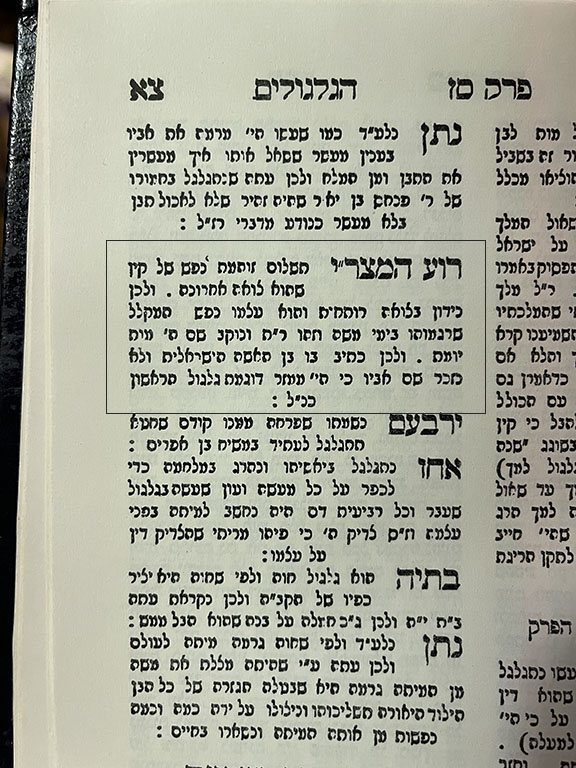Yes, at the end of chapter 67 in Sefer HaGilgulim it brings exactly what was cited in your question from Rabbi Ariel Bar Tzadok.
The Ari z"l, as quoted in a hand-written note from Rabbi Chaim Vital shown here below, is actually making several source references.
The Mitzri mentioned in the heading is referring to the unnamed Mitzri also mentioned in Shemot 2:11-12. This is the individual that Moshe Rabbeinu killed by using one of G-d's names. In the commentaries there, it mentions that Moshe actually checked to see if any important descendants would come from this person before killing him.
The Ari z"l also connects the descendants of this individual with Kayin, who murdered his brother, Hevel in the beginning of the book of Bereshit. It was via this association that the Ari makes reference to his ultimate judgement of being immersed in boiling excrement in Gehinom as discussed in tractate Gittin 57a. This particular judgement falls on those who mock the Sages, something specifically mentioned in connection with Yeshu both in his early youth (see for example the Nag Hammadi text of the Infancy Gospel of Thomas) and later, as he grew up like is discussed in connection with his treatment of his teacher, Rabbi Yehoshua ben Perachiyah in Sanhedrin 107b.
This is also discussed in the Zohar 2:12b:5 which also connects this person to Eisav.
But then the Ari z"l goes further and says his pedigree is the same as the person mentioned in VaYikra 24:10-11 and his commonly known name is actually referenced through the Roshei Teivot (first letters) in the posuk from VaYikra 24:16, which in reversed order spells out Yeshu.
The image from my copy of the book follows:



